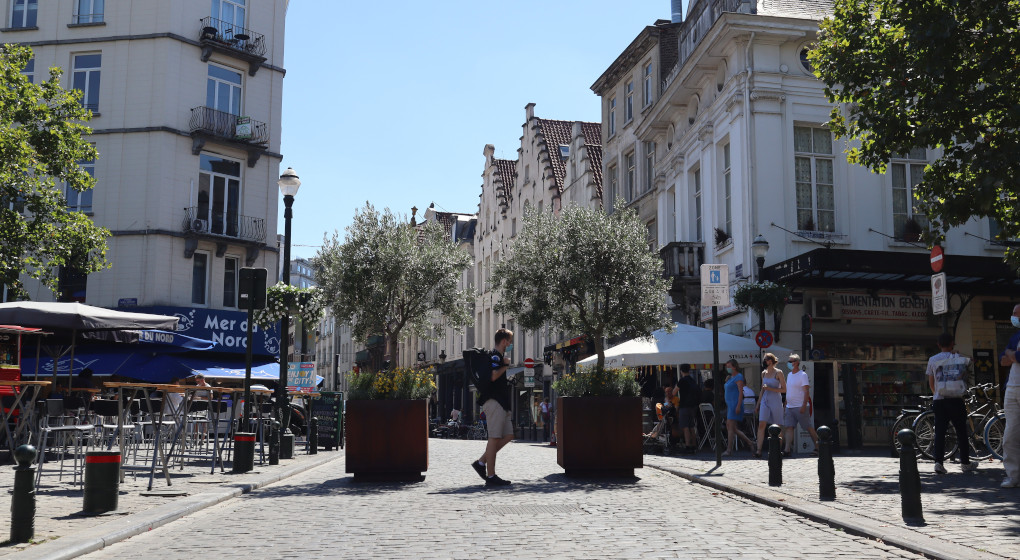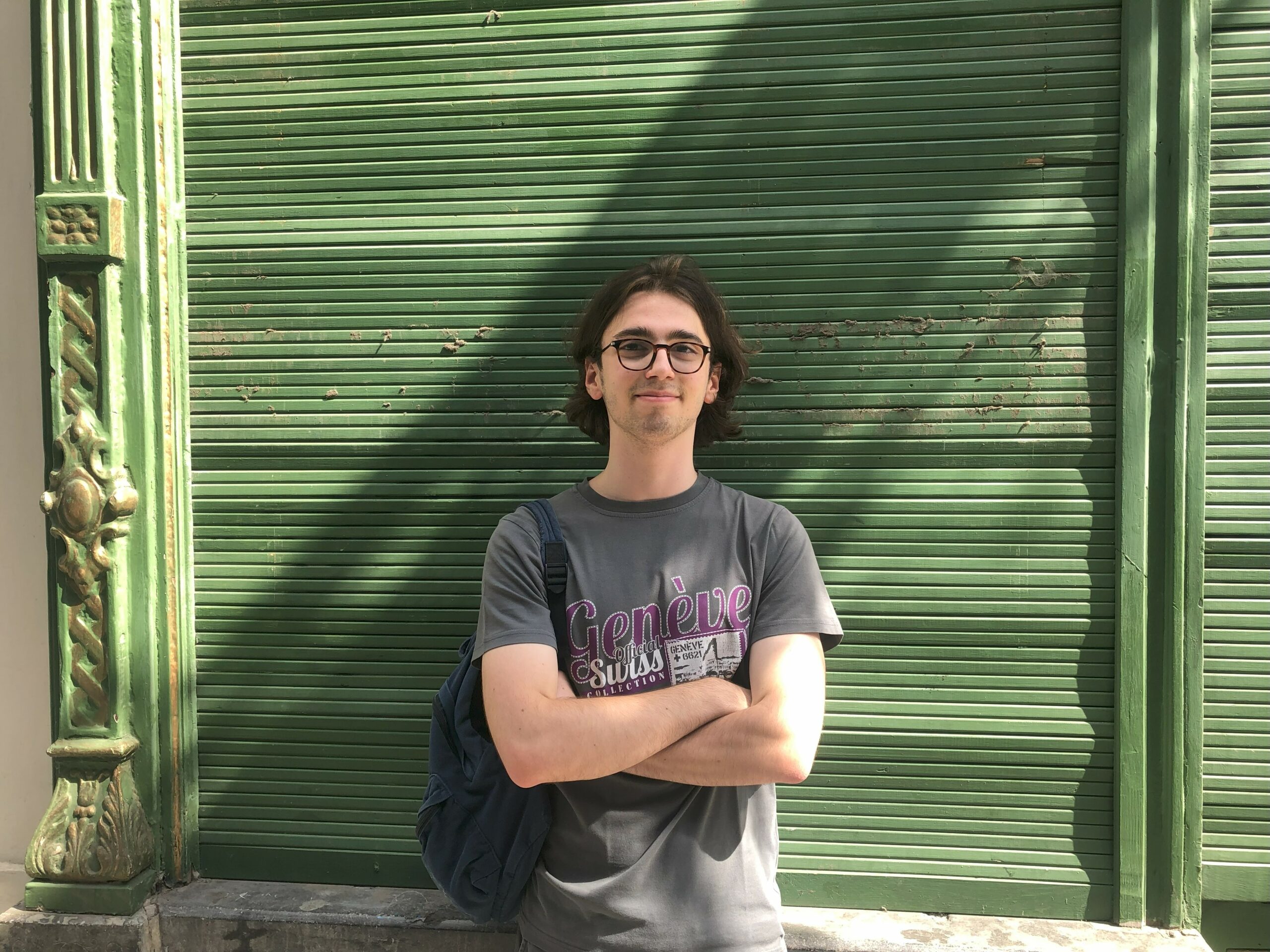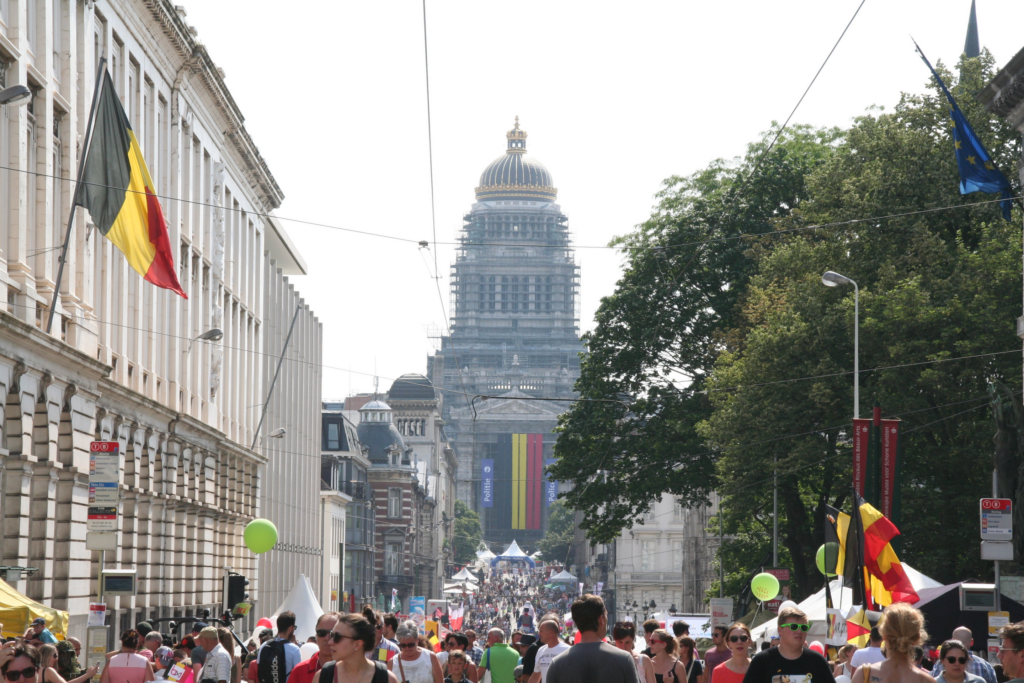This Sunday 21 July is Belgium's National Day, a celebration of the country's independence and King Leopold I's investiture almost 200 years ago. However, not everyone indulges in the outpouring of national pride. What do Brussels citizens think of National Day, and what does it say about Belgium?
Notwithstanding the fireworks display, military parade and activities, many Belgians see National Day as a fun day out and pay little attention to calls to patriotism. Speaking to The Brussels Times on the streets of Belgium's capital, locals expressed mixed feelings about the day.
Whilst there was general agreement that National Day is a subdued affair for most people living in Belgium, enthusiasm for the official celebrations varied. One fishmonger on Place Sainte-Catherine expressed "disgust" at a day that is "all for show" and "costs far too much money".
The shopkeeper has lived her whole life in Brussels and has worked on the square since 1986. But not once has she partaken in National Day festivities. For her, the occasion is little more than an annual jump in mussels sales. She notes a fall in lobster sales on 21 July in recent years, which she says used to be an important element of the celebration for older generations.

Place Saint-Catherine. Credit: City of Brussels
Younger people think less about the event, if indeed at all. Michaël Van Eeckhoudtte, another Brussels native, is studying Business at KU Leuven and confesses that the upcoming anniversary had slipped his mind. "I forgot it was happening," he says with a laugh. "But I will take a look and join in the party."
Van Eeckhoudtte believes that Belgians are not very nationalist, so the day is hardly an exhibition of national unity. For him, supporting the national football team the Red Devils is a much more unifying experience for the typical Belgian.
'More Brusseleer than Belgian'
Many Belgians feel that regional identity overpowers national pride. "I feel more Brusseleer than Belgian," says Van Eeckhoudtte, suggesting that nationalism might be weak because of how Belgium was created in 1830: as a buffer state between France and Germany.

Michaël Van Eeckhoudtte. Credit: The Brussels Times
Animator and long-time Brussels resident Joost Jansen echoes this sentiment. "I don’t know what it means to be Belgian," he tells The Brussels Times. "We are a country that originated out of conflict. We are not an old country and there are a lot of different identities [within Belgium]."
Originally from Flanders, Jansen relates more to being Brusseleer than being Flemish. "There is no single identity [in Brussels]. Flanders is more restricted, conservative. In a way it is beautiful that identity pushes you to be part of a group but it also excludes diversity."
Belgium needs more than one day
Jansen doesn't have any big plans for Sunday. Nor does Delphine, a Walloon with two young children. However, it is not for lack of national pride that the latter is spurning the festivities.
"I love Belgium, but National Day is like Valentine's Day," Delphine explains. "I don't need one special day to show my love."
Related News
- Becoming Belgian: Who is eligible for citizenship, and how to apply
- From refugee to Belgian: The long road to nationality and belonging
What makes Delphine proud to be Belgian? The country's friendly disposition, its creativity, its artistic talent and its seaside. "I am proud of all of these things when I go abroad."
Nevertheless, Delphine has no plans for Sunday and will probably stay home "because the music I play is better than the music at the official events". The kids will be away with the Scouts so they won't partake in any celebration, which doesn't seem to perturb them too much as the family saw plenty of fireworks when they were in France for Bastille Day on 14 July.
"We already saw fireworks in France," Delphine’s young son pipes up. "My parents planned nothing for National Day so that's that."

